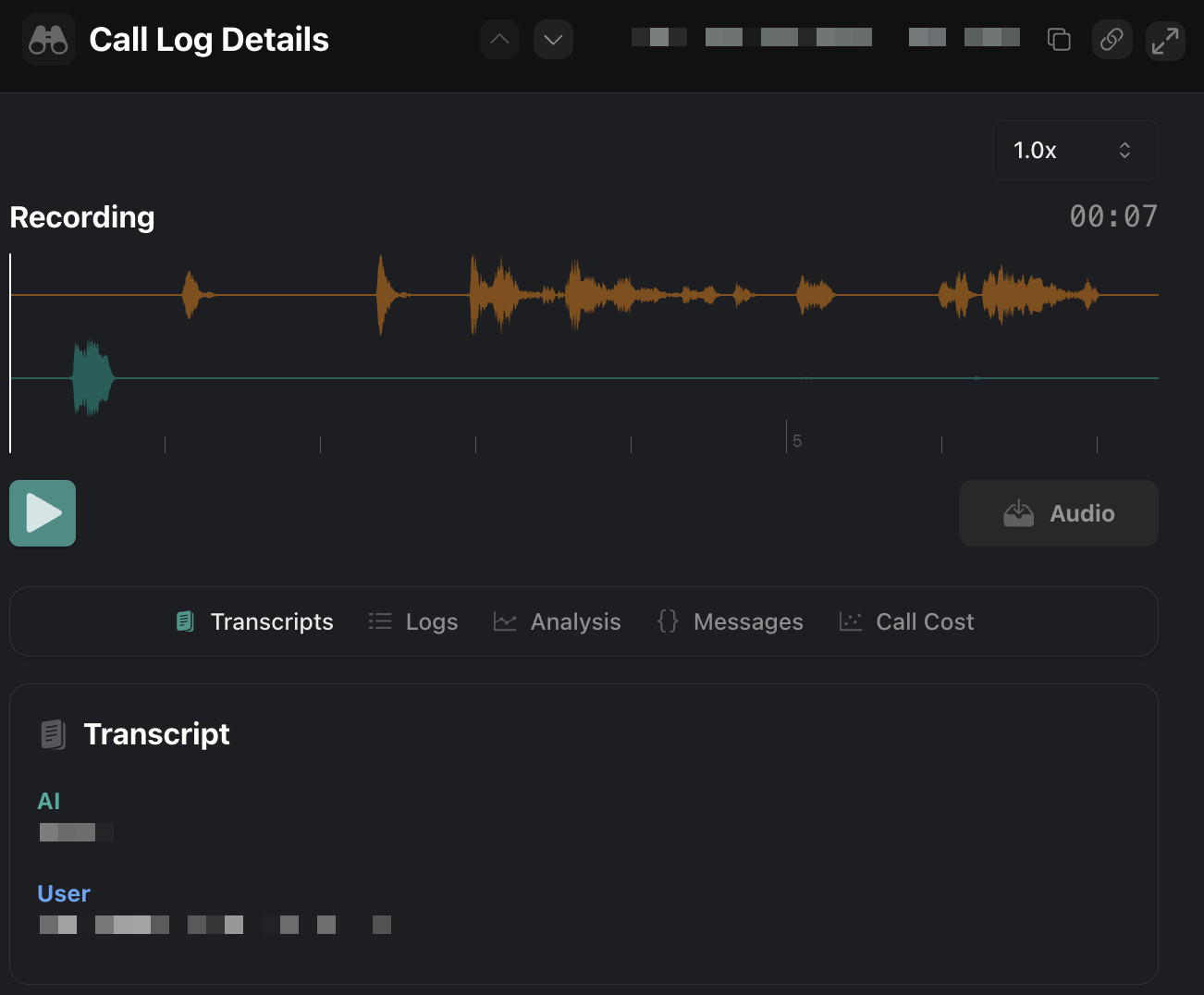- Simplified Assistant Schema: The
Assistantschema is now simplified to focus on essential properties likeassistantId,name,type, andmetadata. Other advanced settings have been moved to the Call schema.
Call.assistant instead of Assistant.- New Structured Recording Properties in Artifact Schema: You can now access recording details through
Call.artifact.recording, which provides a structured way to obtain mono, stereo, and video recordings. This replaces the old recording url properties with a more organized format. You can also access this data through the dashboard (Observe > Call Logs)

The Call.recordingUrl, Call.videoRecordingUrl, Call.stereoRecordingUrl, and Call.videoRecordingStartDelaySeconds properties are now deprecated. Transition to using Call.artifact.recording for accessing recording information.
-
Include SIP Headers in Refer-To URI for Transfers: By enabling
sipHeadersInReferToEnabledin yourCall.assistant.hooks.do[type=transfer].destination.transferPlan, you can now include SIP headers as URL-encoded query parameters during call transfers. -
Increased Length Limits for Liquid and Rubric Fields: You can now write longer LiquidJS expressions in
LogicEdgeCondition.liquid(up to 1000 characters) and more detailed rubrics inTestSuiteRunScorerAI.rubricandTestSuiteTestScorerAI.rubric(up to 10,000 characters). Refer to Advanced Date and Time Formatting documentation for more information. -
Introduction of Start Node in Workflow: A new
Startnode type is available in the assistant’s workflow. Use this to define the starting point of your assistant’s conversational flow with customizable metadata. Refer to Workflows documentation for more information. -
Standardized Assistant Version Pagination Response: When fetching assistant versions, responses now conform to the
AssistantVersionPaginatedResponse. This standardization makes it easier to handle paginated data.